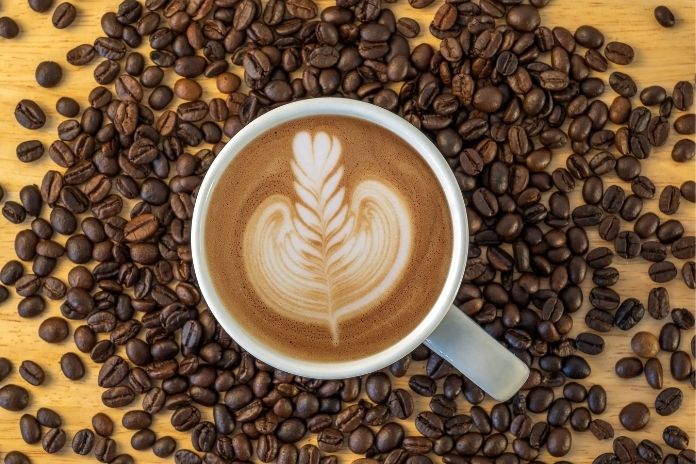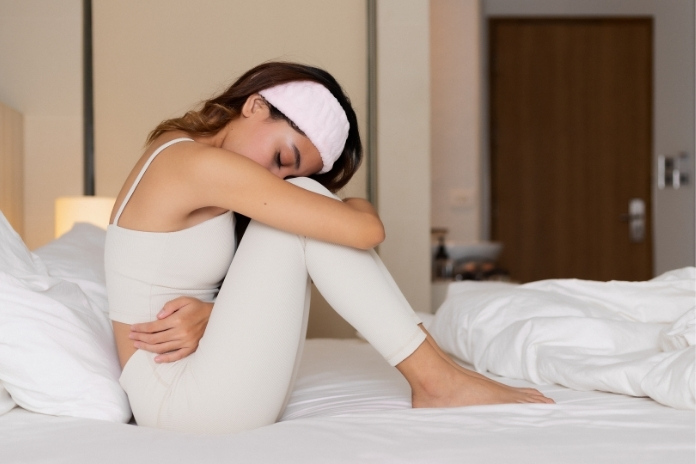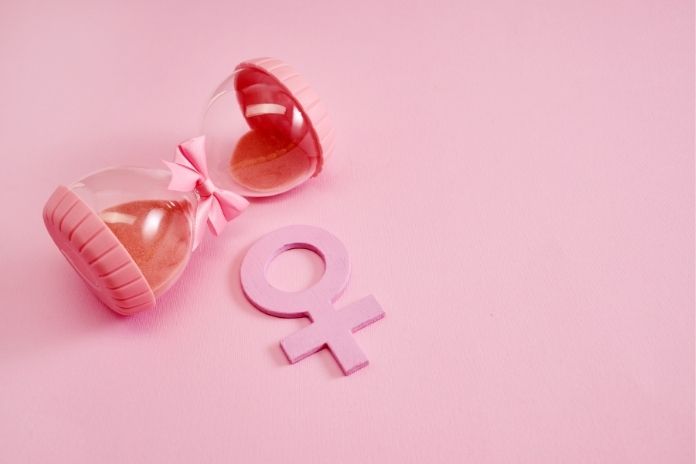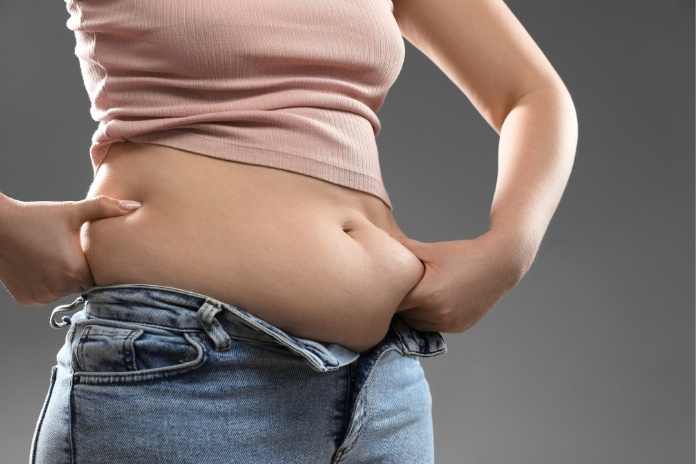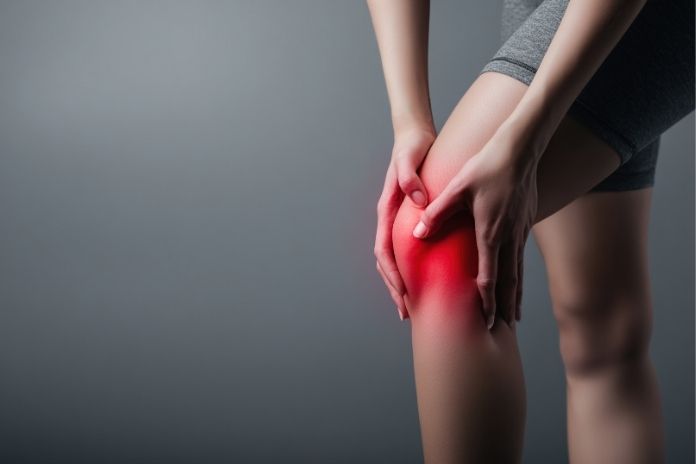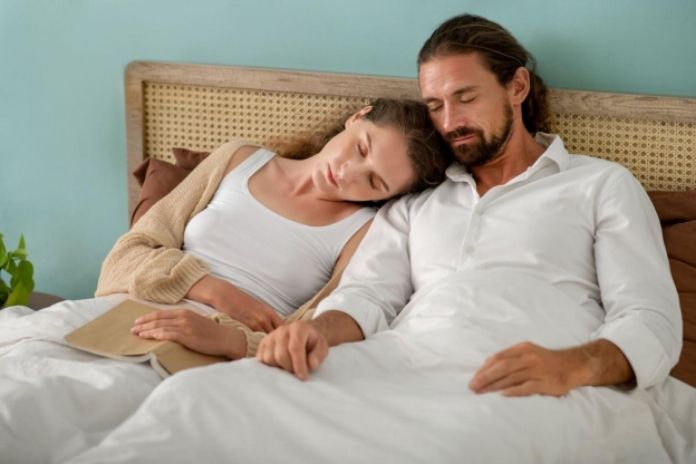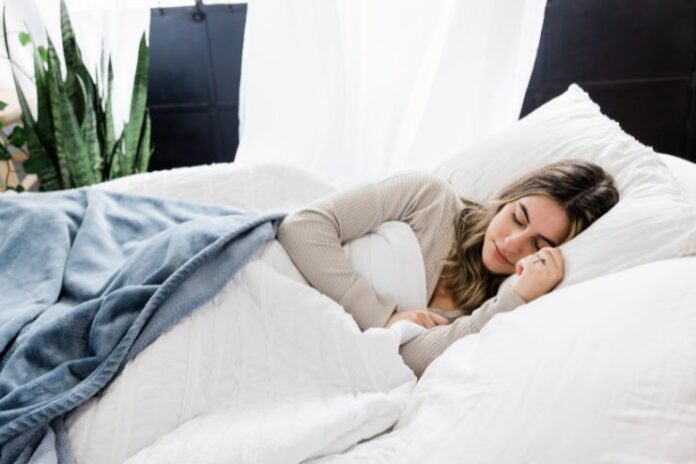“I used to think an afternoon coffee was harmless—until I gave it up.”
If you’re anything like me, that post-lunch cup of coffee feels like a small celebration. It’s the perfect productivity companion: a warm cup of motivation, comfort, and alertness wrapped into one. For years, my 3 PM coffee was non-negotiable—a reliable pick-me-up to power through the afternoon grind. I genuinely believed it had little impact outside of a short-term energy boost.
But over time, I started noticing patterns. I was logging 7 to 8 hours of sleep each night, but I didn’t feel rested. Mornings felt heavy, and nights were restless. I would lie in bed with my mind racing, scrolling through social media with tired eyes. My body begged for rest, but my brain just wouldn’t switch off. I was living in a cycle of wired-but-tired.
So I decided to run a simple experiment: no caffeine after 2 PM for one week. Just one small change to see if it could unlock better sleep and smoother energy. Spoiler alert: it did. But what surprised me the most was how quickly the benefits kicked in.

Why Caffeine Affects Sleep (The Science Briefly)
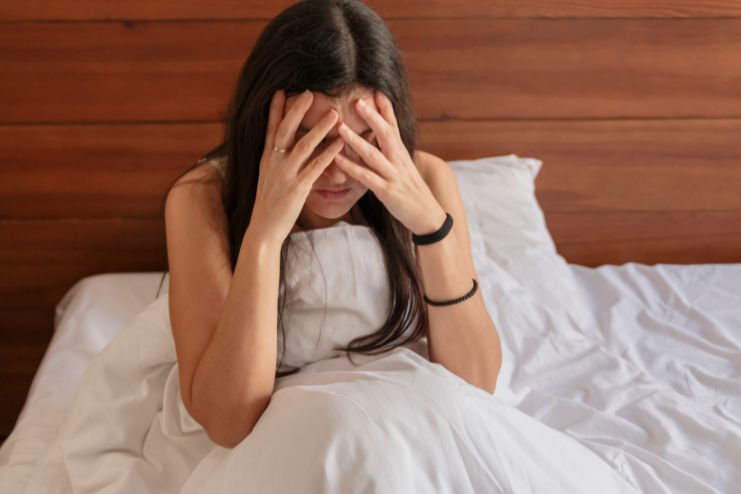
Before I dive into my experience, let’s break down why caffeine messes with your sleep even if it’s hours before bedtime.
Caffeine works by blocking adenosine, a chemical in your brain that builds up throughout the day and helps you feel sleepy at night. Think of adenosine like your body’s internal clock winding down. Caffeine essentially puts a pause on that clock, keeping you alert when you should be preparing for rest.
Now, here’s the kicker: caffeine has a half-life of 5 to 6 hours. That means if you drink coffee at 3 PM, half of that caffeine is still circulating in your system at 8 or 9 PM. And it might stay active even longer depending on your metabolism.
This can lead to:
- Delayed REM sleep – the dream-rich, mentally restorative phase of sleep.
- Reduced deep sleep – your body’s most physically restorative stage.
- Fragmented sleep – frequent wakeups and lighter sleep cycles.
In short, you might be asleep, but you’re not getting the kind of sleep that leaves you energized and refreshed.
Read More: 11 Natural Ways To Get Rid Of Caffeine Headache
My Daily Routine Before the Change
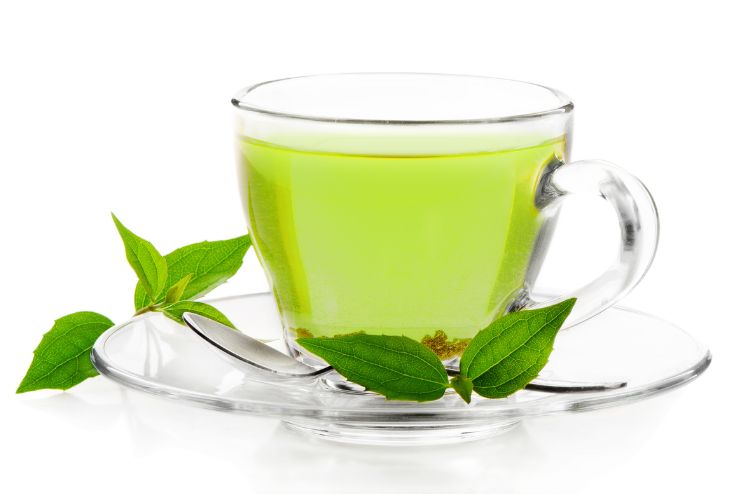
To give you some context, here’s what my caffeine intake typically looked like:
A morning coffee at 8 AM — completely non-negotiable, my way of kickstarting the day. Then an afternoon coffee between 3–4 PM, usually to push through the post-lunch lull or finish tasks before the evening wrapped up. On particularly deadline-heavy or mentally draining days, I’d reach for green tea or the occasional energy drink in the evening, hoping for that extra edge.
While I wasn’t guzzling down caffeine nonstop, the timing of my intake was flawed — and it showed in ways I couldn’t ignore.
I started noticing a pattern of troubling symptoms:
- Difficulty falling asleep, even when my body felt exhausted.
- Groggy wake-ups, despite logging a solid 7–8 hours of sleep.
- Restless evenings, where I’d get a burst of renewed energy just as I should be winding down.
- Endless scrolling in bed, unable to disconnect or quiet my mind.
- Craving even more caffeine the next morning, just to feel normal and function at baseline.
It felt like I was trapped in a self-reinforcing loop — caffeine was both the short-term solution and the long-term culprit. I was chasing alertness during the day, only to sacrifice rest at night, which pushed me to double down on caffeine all over again.
What Happened When I Cut Off Caffeine After 2 PM

Days 1–2: Foggy and Fidgety
The first two days were surprisingly difficult. Without that trusty 3 PM cup of coffee, I found myself slumping hard around 3:30 PM. My energy dipped dramatically, and I experienced a mix of physical and psychological withdrawal symptoms:
- Mild headaches and noticeable brain fog.
- An almost automatic habit of reaching for coffee—pure muscle memory.
- A steady stream of yawns and the nagging urge to nap.
To get through it, I started swapping my usual coffee for lemon water or peppermint tea. Neither gave me the jolt I was used to, but they offered some hydration and ritual, which helped me stay grounded.
Days 3–5: Sleep Begins to Shift
By the third day, things started to change. I noticed that I began feeling naturally sleepy earlier in the evening, around 9:30 to 10 PM. I didn’t need to force myself to lie down or engage in elaborate wind-down rituals. My body was simply ready.
- Falling asleep was faster and less frustrating.
- I didn’t toss and turn as much before drifting off.
- Mornings began to feel less like a foggy fight against the snooze button.
To my surprise, my afternoon energy wasn’t as dreadful either. I tried 5-minute movement breaks—like stretching, walking to the window for sunlight, or doing a few jumping jacks. These didn’t give me a caffeine-like buzz, but they helped sustain alertness.
Days 6–7: Real Rest Kicks In
By the end of the week, the change was undeniable:
- My sleep was deeper, and I stayed asleep through the night.
- No more middle-of-the-night wakeups around 2–3 AM.
- I woke up feeling really refreshed, as if I’d finally slept through the night instead of just lying in bed for 7 hours.
And the most remarkable part? I didn’t need my morning coffee to function—I just enjoyed it. My morning energy was already on a solid baseline.
Other Benefits I Noticed

Beyond the major upgrade in sleep, cutting caffeine after 2 PM brought a few unexpected bonuses that improved my overall well-being:
- Reduced late-afternoon anxiety: Without the lingering caffeine, I no longer felt jittery or mentally overstimulated as the evening approached. My mood stayed calmer and more grounded.
- Fewer nighttime sugar and snack cravings: Without caffeine triggering blood sugar fluctuations, my evenings felt steadier. I craved less sugar or unnecessary snacks late at night.
- Sharper evening focus and relaxation: I found it easier to read, journal, or simply unwind without feeling restless. My evenings became more mindful and less scattered.
- Better hydration habits: Swapping afternoon coffee for herbal teas or water helped me stay consistently hydrated — a quiet but noticeable improvement in how I felt physically.
- A surprising sense of mental clarity: Without using caffeine to push through afternoon fatigue, I gained more awareness of my natural energy patterns. My evenings felt calmer, and I had better control over my routines and habits.
There was a strange sense of mental clarity that emerged once I wasn’t using caffeine as a crutch to power through low energy. I had more mindful evenings and better control over my habits.
Read More: 15 Benefits Of Quitting Caffeine
Challenges and Adjustments

Of course, the shift didn’t come without a few bumps:
- Initial productivity dip (Days 1–2): Afternoons, especially post-lunch, felt sluggish and unfocused without the usual caffeine boost. Getting through tasks took more effort than expected.
- Unexpected social adjustment: Skipping coffee breaks with coworkers felt oddly isolating. I realized how much of my coffee habit was tied to routine and casual connection, not just energy.
- Exploring alternative ways to stay alert: I turned to simple, intentional habits like short walks, stretching, and standing breaks. While these didn’t offer an instant jolt, they helped maintain steady energy throughout the day.
- Shifting mindset: From sacrifice to self-care: By consciously reminding myself that this phase was temporary, the discomfort faded. Within a few days, what seemed like a tough adjustment started feeling like an investment in long-term well-being.
The key was reminding myself it was temporary. After a few days, the adjustment didn’t feel like a sacrifice anymore—it felt like a favor to my future self.
Will I Keep Doing it? My Honest Take
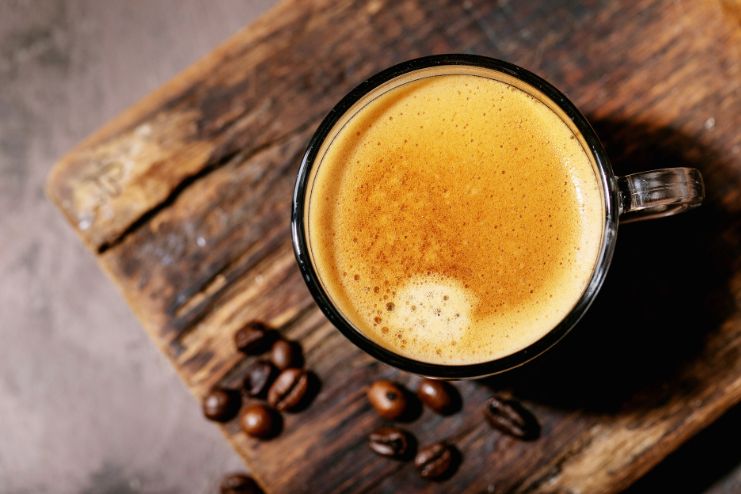
Absolutely—this is a habit I plan to keep.
I’m not anti-coffee. In fact, I still love it. There’s something comforting about the ritual: the aroma in the morning, the familiar warmth of the cup in my hands, even the quiet pause it brings to a busy day. But now, I understand something I didn’t fully appreciate before — timing matters.
My biggest takeaway? Sleep is too important to treat casually. We spend so much of our lives trying to optimize our waking hours — working smarter, exercising, eating well — but often neglect the single habit that restores all of it: quality rest. And if one small, simple shift in my daily rhythm can deliver better sleep, more stable energy, and clearer mornings, it’s a change worth sticking with.
It’s not about cutting things out of life, but about aligning my choices with how I want to feel. And for me, that means respecting both coffee and sleep — and letting each have its proper time.
Read More: From Caffeine to Chamomile: Drinks That Boost Energy
Conclusion
What started as a simple experiment—stopping caffeine after 2 PM—turned out to be a major shift in how I sleep, wake, and function throughout the day. I didn’t realize how much that single afternoon coffee was affecting my nights until I took it out of the equation. Within a few days, my body’s natural rhythm kicked in, and for the first time in a long time, I felt truly rested in the morning.
This experience showed me that you don’t need to quit coffee altogether to see benefits. Instead, just respecting the timing of your last cup can dramatically improve sleep quality and daily energy. It’s an easy lifestyle change that doesn’t require expensive tools, fancy supplements, or a complete overhaul of your routine—just a bit of mindfulness about when you sip.
If you’re struggling with restless nights, groggy mornings, or an over-reliance on caffeine, try setting a cut-off time. Mine was 2 PM. Yours might be a bit earlier or later, but the key is listening to your body. Sometimes, the simplest habit shift can lead to the biggest improvements.
References
- https://www.sleepfoundation.org/nutrition/caffeine-and-sleep
- https://sleepeducation.org/sleep-caffeine
- https://jcsm.aasm.org/doi/10.5664/jcsm.3170
- https://pmc.ncbi.nlm.nih.gov/articles/PMC6292246
- https://www.webmd.com/diet/ss/slideshow-what-happens-when-you-give-up-caffeine
- https://www.ama-assn.org/delivering-care/public-health/what-doctors-wish-patients-knew-about-impact-caffeine
- https://www.theguardian.com/lifeandstyle/2022/jan/14/easy-wins-resist-caffeine-after-midday-and-maybe-score-an-afternoon-nap
- https://www.healthline.com/health/food-nutrition/quitting-caffeine-benefits
- https://www.buzzrx.com/blog/benefits-of-quitting-caffeine
- https://www.nib.com.au/the-checkup/benefits-of-quitting-coffee
- https://www.self.com/story/benefits-of-quitting-caffeine
In this Article

